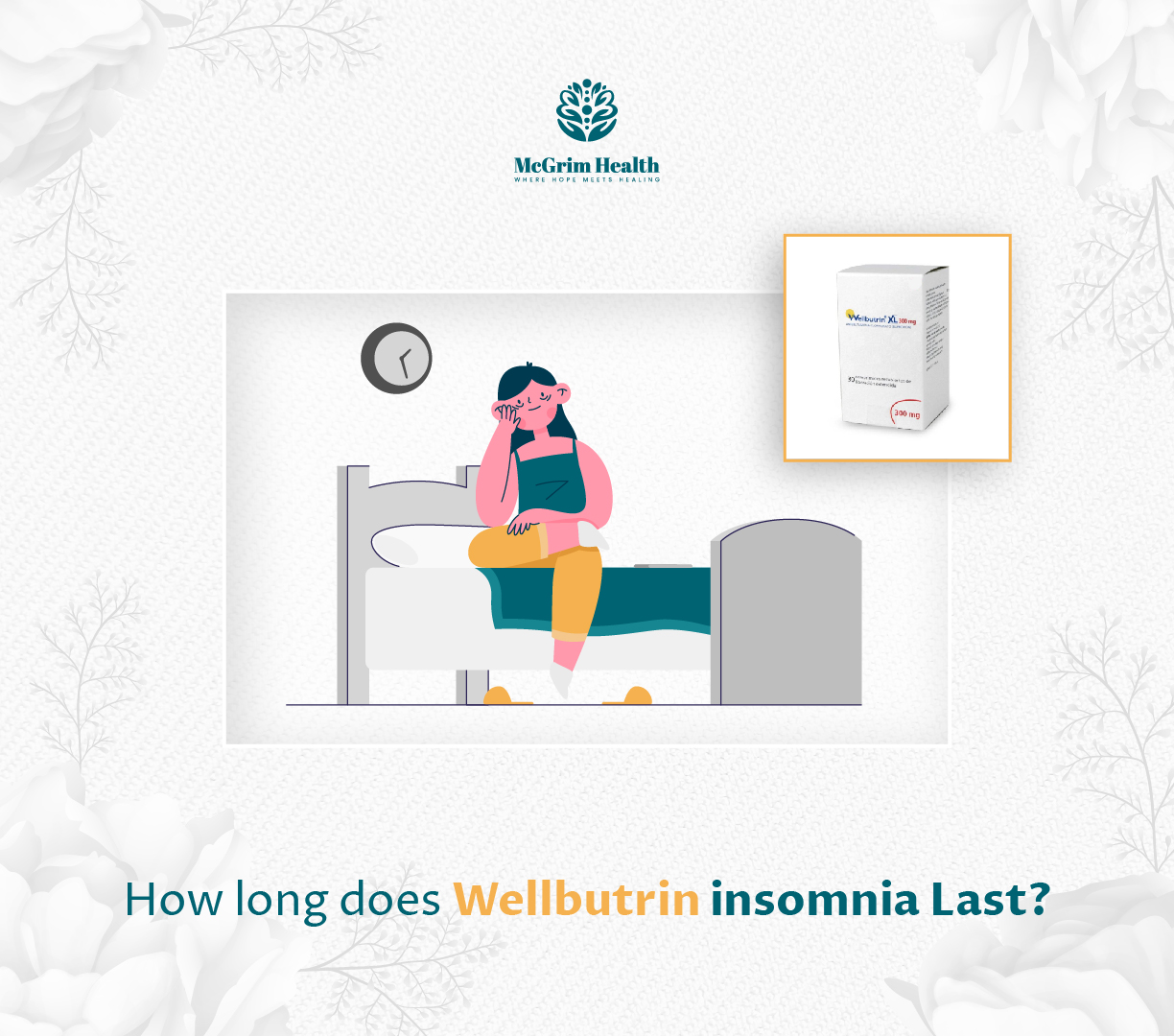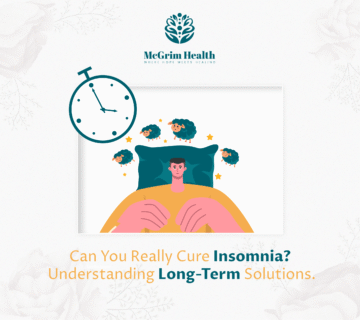Understanding Wellbutrin Insomnia
Many medicines, Wellbutrin (bupropion) included, often result in insomnia. Mainly used for treating depression and habits of smoking, Wellbutrin works well. Yet, it does come with a tricky side effect, insomnia. We will look into how long this Wellbutrin-induced insomnia usually sticks around, why it happens, and ways to handle it.
What is Wellbutrin?
Wellbutrin, or bupropion as it’s technically known, is a drug that combats depression. It’s part of the norepinephrine-dopamine reuptake inhibitors (NDRIs) drug group.
Unlike similar treatments, Wellbutrin has a distinctive style of action, making it effective at tackling both major depressive disorder (MDD) and seasonal affective disorder (SAD). It’s even used as a tool to quit smoking, branded as Zyban.
How Does Wellbutrin Work?
It modifies the brain’s neurotransmitter levels. In particular, it lifts levels of norepinephrine and dopamine. These chemicals affect mood and actions. So, by tampering with these, Wellbutrin can soften depressive symptoms and cut down smoking cravings.
Why Does Wellbutrin Cause Insomnia?
Wellbutrin, a medication, has been noted to cause insomnia or sleep troubles. Why? It’s the stimulant-like impact it has on the brain.
The Stimulant Effect
On stimulating neurotransmitters like norepinephrine and dopamine, Wellbutrin amps brain activity up. This raised act leads to sleep hurdles when the brain struggles to relax at night, leading to insomnia. This can involve feeling jittery while lying in bed or waking up more often overnight.
Individual Sensitivity
Keep this in mind though, insomnia doesn’t hit everyone on Wellbutrin. The medicine affects different people differently. Things like dosage size, the body’s rate to metabolize it, and the state of personal health play a role in determining this insomnia side effect.
How Long Does Wellbutrin Insomnia Last?
So how long does wellbutrin insomnia last? Sleep issues from Wellbutrin may last different amounts of time for different people. A few things can change how long this issue lasts:
Getting Used to the Medicine
At first, many people find it harder to sleep when starting Wellbutrin. Our bodies need time to get used to new medicine. This can take from a few days to a few weeks. As our bodies get used to it, the sleep issues might lessen.
Dosage Adjustments
How much Wellbutrin you take can change how long you have sleep issues. More medicine can make sleeping harder. If sleep ticks on, your healthcare team might change your dose. They want to lessen side effects while keeping the good effects of the drug.
Long-Term Use
Sometimes, sleep issues might stay as long as you take Wellbutrin. But this isn’t always true. Some people find their sleep gets better over time, even while still taking the drug.
Individual Differences
Everyone reacts differently to medications, and this is true for insomnia too. Things like your age, health status, and other drugs you’re on can affect how long insomnia lasts.
Does Insomnia From Wellbutrin Go Away?
Yes, Wellbutrin insomnia does go away. It often subsides as your body becomes accustomed to the drug. This accommodation period could span a few days or even weeks.
Should insomnia continue, altering the medication’s dosage or schedule, or practicing good sleep habits may aid. Always seek guidance from your medical professional for advice tailored to you.
How to Deal with Wellbutrin Insomnia – Tips
Treating insomnia from Wellbutrin involves:
Adjusting the Timing of the Dose
Wellbutrin earlier in your day might make insomnia less likely. If you now take it in the afternoon or at night, talk to your doctor about taking it in the morning instead.
Establishing a Sleep Routine
Set a steady sleep schedule to enhance your sleep. Aim to snooze and rise at the same time daily. This tunes your internal clock, simplifying sleeping and staying asleep.
Limiting Stimulants
To boost sleep quality, restrict stimulants. Stay clear of caffeine, nicotine, and alcohol, specifically before sleep. This helps thwart good sleep disruption and counters insomnia-related side effects of Wellbutrin.
Creating a Relaxing Bedtime Environment
Making your bedroom a peaceful space helps signal sleep time to your brain. Try blackout curtains, and keep the room cool. Also, utilize white noise machines. Engage in calming activities like reading or a warm bath before bed. This gets your body ready for sleep.
Cognitive Behavioral Therapy for Insomnia (CBT-I)
CBT-I is a structured program that helps individuals develop healthy sleep habits and address the thoughts and behaviors that contribute to insomnia. This type of therapy can be particularly effective for managing medication-induced insomnia.
When to Consult a Healthcare Provider
If you can’t sleep well because of Wellbutrin, despite trying everything, don’t hesitate to talk to a doctor. Continual sleep trouble can impact your life and health. Your healthcare provider may suggest further adjustments to your medication regimen or explore alternative treatment options.
Possible Medication Adjustments
Sometimes, a doctor might suggest trying a new antidepressant if you still can’t sleep well. Or, they may prescribe you medicine to help you sleep while you continue taking Wellbutrin.
Monitoring and Follow-Up
Regular follow-up appointments with your healthcare provider are crucial when managing side effects of any medication. These appointments allow for ongoing monitoring of your symptoms and provide an opportunity to make necessary adjustments to your treatment plan.
Conclusion: Finding the Right Balance
Dealing with insomnia when on Wellbutrin can be tough, yet with helpful techniques and assistance, it’s often controllable. By working closely with your healthcare professional and embracing good sleep routines, plenty of people, specifically people at Cottonwood Creek Healthcare Community, can enjoy respite from sleeplessness while they also gain from Wellbutrin’s healing impacts.
Take Action with McGrim Health
If Wellbutrin side effects are keeping you up, McGrim Health has solutions. Our professionals offer custom care that fits just you. Insomnia shouldn’t affect your life.
Make your move today towards sound sleep and top-notch health. Make an appointment with us today.
FAQs
What is the relationship between Wellbutrin and insomnia?
Wellbutrin can cause insomnia as a side effect due to its stimulant-like impact on the brain.
How long does bupropion insomnia last?
It usually lasts from a few days to a few weeks as the body adjusts to the medication.
Does insomnia from Wellbutrin go away completely?
Yes, in the majority of cases, it gets better over time.
How long does Wellbutrin stay in the body?
Wellbutrin has a half-life of nearly 21 hours. So, it needs around 4-5 days to fully exit the body.





No comment